
UPDATE ON REVOLUTIONARY STRUGGLE CASE
DAY 4,
Wednesday, 9.11.2011
With the beginning of the procedure the chairman announced the rejection of both demands that had been submitted in the previous session. The transfer to a room of the court of Appeals, he said, cannot take place, because there is no available room for the period of time that the trial is expected to last. The court avoided to repeat the provocative opinion of the public prosecutor about security reasons and endangerment and it was limited to a formal reason, that of course, if there was will, it could have been surpassed. As if they could not find a room. The recording of the proceedings with a tape recorder also cannot take place, announced the chairman, because officially there is no infrastructure and personnel in order to it contribute to the secretary. This decision was also expected. Regarding the possibility of recording by the defendants and advocates for their personal use, the chairman answered that there will be tolerance.
Following that, continued the discussion on the objection of non-juristiction of the court, because of the political character of the offences, with statements of advocate of Dafni Vagianou and Pola Roupa and the reading of a statement of the absentee, because of illness, Kostas Gournas.
We should surpass the subjugation in the political speech that imposes the de-politicization of actions that are characterized as terrorism, asked D. Vagianou, making an extensive theoretical analysis, in which she combined political and historical elements and elements of the theory of Justice. Revolutionary Struggle, she said, began its action at the verge of an era, in 2003. Had preceded the attack on the twin towers in New York, the criminal war in Iraq and the beginning of Bush’s “war on terrorism”. The era, that is to say, where is presented the crisis of globalisation of a system that today is going through its deepest crisis. An era that was signalled, also, from the revolt of the youth in December 2008, which, while the christmas tree was burning, wrote “merry crisis and happy new fear”.
The advocate referred to not only the political character of the actions of R.S., but also to the political character of the reactions of its opponents, such as the bounty by the American superpower or the estimates that if the attack on Citibank succeeded greek economy would collapse.
She referred to the undertaking of political responsibility from the defendants, without any evidence against them, aiming at the continuation of their political existence inside prison. As well, the analysis of R.S. for the crisis and its class character, that constitutes a theoretical contribution to the more general discussion that is taking place, it constitutes one more proof of the political character of the organisation.
Afterwards, D. Vagianou made an extensive analysis of the historical course of the significance of a political offence in legal science, from the era that followed the French Revolution, when the attempt of occupation of power was still considered a noble objective, until today that a violent de-politicization of organisations and acts of political violence is taking place.
She also referred to the special regime which the communists faced for an entire historical period, from the end of WW2 up to 1974 and she presented the proportions of that period with the period of the “war on terrorism”.
She closed her allocution with a reference to the reasoning of submitting the objection. It was submitted, she said, in order for there to be a continuity with the other two historical political trials (17N and ELA [revolutionary popular struggle]) and because, especially in this era, to characterize political the actions of a revolutionary political organisation has a special importance.
Those who are chased by the people and are hiding will say that we are criminal elements? This nodal question was placed by P. Roupa in her own statement. Initially, she said, we did not want to submit this objection, because we do not consider that there is a court that can judge us. We should be free, in order to participate in the social struggles, in the struggles for social liberation. Who should be punished are the various Buffets and Soros, the scum of the stock market that exterminate entire populations, the various Triches, Barrosos and Lagards, the international and greek political elite, the capitalists. A popular court would decide very harsh punishment for all of them. We believed and we believe, therefore, that we should not be on trial.
The exclusion of the sworn courts from these cases, continued P. Roupa, expresses the insecurity of the state and this is why it keeps pace with the neo-liberal attack of the state and capital. Is widespread their fear to not leave these cases in the hands of people that cannot be controlled, like judges can. The objection was a good opportunity for us to express our opinions.
Afterwards, P. Roupa dealt with the analysis of the political character of the motives, comparing the motives of R.S. with the motives of its political enemies. Those who govern, she said, referring indicatively to political families such as Karamanlis and Mitsotakis and politicians such as Roussopoulos and Dukas, they have clearly selfish motives. They steal the bread of the people and they make mythical fortunes, which they live on even when they leave politics. Our own interest is identified with the interest of the class of proletarians. In the fight we lost our comrade, Lambros Foundas, we went to prison and we took the political responsibility for our participation in the organization, in order for us to also defend our dead comrade, and this shows not only that our motives were not humble, but that they were the most social motives. We identified ourselves with the struggle for the social revolution. This court, she led, should be ashamed to have been put together. She reminded that the ’70s, a Council of appeals judges denied the extradition of Rolf Pole to Germany, with the reasoning that his action was political. And back then PASOK (she read statements of Papandreou, Magaki, Haralabopoulos) said bravo to the court that stood its ground. Back then PASOK tried to enclave a part of the population, it was the era after the fall of the junta.
Afterwards, she made an extensive analysis of the historical course of the last decades, with references to the course of the crisis, the interventions of the IMF, the neo-liberal model as an attack of the system against all social conquests in order to continue the accumulation with other terms, which she combined with the political developments during the postwar period, that led to the changing of the system concerning the confrontation of armed organisations. A change that was imprinted in the successive terror-laws, that finally reached the introduction of the significance of “terrorism”. Henceforth the state, she said, has no need to wrap the legal frame for the prosecution of its enemies. The characterization “terrorist” follows every action that disputes the system even with non armed means, what follows is even the prosecution of belief. They are so insecure that they will even prosecute words and phrases. This is why you will condemn us, she continued, even without evidence. She brought, as an example, the sentencing in the case of the organization Conspiracy of Cells of Fire, without any evidence. Condemnations that were based on the logic that we do not care us what they say or if there is evidence, but its enough that we recognize them as enemies of system. If we take, one by one, all the actions of R.S. there is nothing that is not political in the choice of targets and and the analysis. All actions had a specific political aim (she brought examples). If these aren’t political choices, then what is? We do not await recognition from the court, she ended, but this is how R.S. will go down in History.
Afterwards, N. Maziotis read a statement by K.Gournas, who was absent from the court because of an illness. Our objective, wrote K.Gournas, was the dynamic intervention in greek society, in order to develop a movement that will fight for a free world, where the “below” will decide for their life. Our struggle was a political struggle, however you will not recognize it, because you do not want to recognize that your have enemies that act politically. For us, however, he led, what is important is that greek society recognizes us as an ally piece of it.
Being laconic the public prosecutor, in an allocution that did not even last five minutes, simply put the judges in front of their responsibilities as representatives of the system in this trial. To him, political crime is only the crime of utmost betrayal, hence the actions attributed to the defendants are not a political crime, but a crime of common penal justice, independently of their motives! Maybe, of course, they sought to affect the regime, however the means they used were disadvantageous. Because by executing 5-10 police officers you cannot reverse a regime. Most likely you will reinforce it. This is -according to the public prosecutor- the difference between a political crime and a terrorist crime! In the terrorist crime is required and is enough the aim of the defendants!
He did not add, however, what is “required and is enough” in a political crime. We will explain. If some people of the governmental mechanism organise a coup d’etat and do not achieve, then it will be considered that their offences are political. If some citizens -many or few it does not matter- turn armed against the ruling class and its state, disputing its monopoly in violence, then their offences are terrorist! Only the people of the system have the special treatment of a political criminal, when they turn against the existing situation. Reasonable from the side of the public prosecutor and all those who support this opinion. The occasional dictators are flesh from the flesh of the capitalistic system and seek not the inversion of capitalism, but the transformation of power, that remains always the dictatorship of the upper class. This is why they are recognized as political criminals. On the contrary, revolutionaries seek the inversion of capitalism, which is why they are characterized as “terrorists”.
The ruling opinion, ended the public prosecutor, is the one of the Supreme Court, from which the present court cannot affray! ‘A royal order and the dogs are tied up’*, in other words. The Supreme Court said it, its like god said it. And here we thought the system is “supported” on the “personal and functional independence of judges”, who judge “freely and consciously”!
To the public prosecutor then answered N. Maziotis. After he observed that he expected him to say much more, he mentioned the Varkiza agreement, which included a paragraph according to which the crimes of common penal justice are excluded from the general amnesty. With this paragraph as a base the fighters of the left were viciously persecuted for the resistance actions they had carried out during the nazi occupation, such as blowing up bridges, executing army officials etc. The citizens judge a lot different from you who are employees of the state, continued N. Maziotis. It was mentioned in survey that took place two years ago by a website, in which exceptionally large percentages considered political violence justified and considered that the actions of armed organisations is political. Today, he said, that we find ourselves under economic occupation, it is very large the percentage of those ask that we resort to weapons. In reality, he said, your court is illegal and does not have any consent from the Greek society.
S. Fytrakis observed that until the 11th (of November) we did not have government of national salvation nor of national subjugation, as others say. And the statements of repentance that the Europeans are asking for are still not signed by Nea Dimokratia. In this climate the court could also make a progress and go back to the Mixed Sworn Courts, like before. As the majority of the judges in the Pole case said no, making a progress, without collapsing the system, you can do the same.
S. Fytrakis answered vitally to the public prosecutor also for the “non disadvantageous of the means”, that he claimed. The one that thinks and acts in this frame, he said, with the minimal means that have symbolic importance, are “covered” by the last provision of the Constitution (article 120 par. 4), that says that the Greek citizens are obliged to resist with any means, without placing a matter of advantageous of the means of resistance that they will use. This is why you should take the case to the Sworn courts, so the popular judges can judge, if the actions of the defendants aimed at the defence of freedom. Afterwards he read an extract from the book of Konstantinos Tsoukalas, published in 1929, titled “the Sworn Courts”, that says the following:
“Indeed, the political criminals are neither an enemy of society, neither do their actions take place with materials motives. Flag bearers of new ideas and motivated by noble, usually, values, take on as servants the true interests of his homeland, are at this only unlucky, since they advance through paths of progress faster than the people around them, to the materialisation of their aims, the rapid fulfilment of which ambitiously they hurry for, they handle means violent and irregular and illicit in order to neutralise the reaction, since they ignore barriers in their very passionate ideology. Consequently in no way can they be compared to the criminal thief or murderer, or those who represent individual interest or mental maliciousness. The offence they commit is relative, since the aims and desires of those judged today as illegal, tomorrow will probably triumph. Failing is not losing, just like it will also be impossible to be a winner, where they would be called to the governing of their homeland and the application of their ideals. Because political struggles can go either way, since the political winds do not always blow in the direction you want.
[After referring to the exclusive jurisdiction of Sworn Courts as a means of saving the political criminals "from the hate and bitterness of the rulers", Tsoukalas ends:]
From the verdict of the people a message is provided to the governors and a lesson concerning their state, since the applaud of the jurors towards a political criminal accused by the authorities is a most terrible disapproval and a threat of an upcoming revolution. On the contrary, regular judges strongly rely on existing laws, immutable in the way they think, but also feel that they break the oath they took, if they adopt the new ideas and trends, absolutely incompetent to judge the obvious, as is the wide horizons of a political offence“.
With new argumentation regarding the narrow objective theory and the advantageous of the means, as was invoked by the public prosecutor, came back D. Vagianou, a fact that forced the public prosecutor, who had not mentioned not even one legal argument, to speak again, even more briefly, accomplishing (indeed, its an achievement) to expose himself more. The only thing I did, he said, was to apply the most common theory and I speak for the specific difference between a political and a terrorist crime, which refers to the advantageousness of the means for the achievement of the objective!
An answer-catapulte came from Marina Daliani. No matter how many times the public prosecutor makes a statement, she said, he will not be able to avoid the logical absurd, to describe on one side the so called terrorism as a political action for the inversion of the existing order and on the other the offences that are related with this action to be characterized as non political. The opinion expressed by the public prosecutor is completely opposite to the order, that claims that the means used by R.S. were advantageous, in order to characterize their actions as “terrorism”. If the public prosecutor wanted to be consistent, he would say: the Supreme Court says this, the order says this, hence I propose to the court to be reserved until after the progress of the trial, from which will be shown the nature of the offences, and not reject the objection.
It is really astonishing (and at the same time revealing of the tearing of the notorious urban law culture): the objection for the political offence and the jurisdiction of the S.C. to judge this particular case is rejected with the argumentation concerning the advantageousness of the means that were used by R.S., and the trial afterwards will take place with argumentation that the means that were used by R.S. were advantageous for the endangerment of the existing order and this is why this offence is “terrorist”. The contradiction of the Public Prosecutor opinions with the political leadership, which said that “it is likely we cannot bear a terrorist attack”, that “the economy will collapse in a moment” etc. pointed out in her second statement also P. Roupa.
After the big break, the chairman announced the rejection of the objection, postponing -the usual tactic that it is followed in these trials- until the future for the argumentation (when they clean write the decision, that is to say).
Followed an objection by advocate Anny Paparoussou (Nikitopoulos defence) for unconstitutionality of article 187A of the Penal Code, according to article 7 par. 1 of the Constitution (“There is no crime, nor a sentence is imposed, without a law that is in effect before the performing of the act and defines the evidence”). If the “terrorism” article of the Penal Code were not so vague, contrary to those of the Constitution, P. Nikitopoulos would not be accused today as a member of an organisation, because he met twice with some of the accused as members of the organization, the advocate intensely pointed out.
The public prosecutor admitted indeed that the particular article is somehow vague, we can’t however reach the extremes and speak of unconstitutionality, he ended, proposing -what else?- the reject of objection. The S. Nikitopoulos said that he will speak empirically, because he is not a lawyer. Whenever political and social conflicts are accentuated, he said, the repressive arsenal is strengthened and the evidence of innocence is abolished. The particular article of the P.C. was never used for major fraudsters and for scandals such as Siemens, but is used systematically for the prosecution of fighters of the anti-capitalistic movement.
After a new break, the court rejected this objection also, with the logic that this particular article gives the opportunity to the judges to evaluate the charges in substance.
Followed the demands of P. Roupa and N. Maziotis for summons of witnesses, according to article 353 par. 1 of the Code of Penal Procedure (not witnesses of defence, but witnesses that are considered necessary for the procedure). They asked to call three “packages” of witnesses, arguing lengthy for the objective of each summons, based on a political mindframe that concerned also the political aiming of R.S. in its various actions and the positions they held or the opinions expressed publicly by those suggested as witnesses.
The first “package” concerned people related with the actions of R.S., for example the ministers of Finances and Work, the American ambassador, the chairman of the Stock Exchange etc. The second “package” of witnesses concerned high-ranking executives of the repression mechanisms, such as the former head of K.Y.P. (central intelligence service) Korantis and the former minister of Public Order Markogiannakis, who had said that the surveillance of N. Maziotis never ceased (there are relative videos), and the executives of the “Antiterrorist” force Horianopoulos, Papageorgiou and Balakos. The third “package” of witnesses concerned low-grade police officers, guards of ministries and others, who had testified in the preliminary investigation, but were not summoned to the trial. These witnesses should be called to testify regarding the fact that R.S. always took all precautions measures in order to do not have any victims from their actions, while in cases where citizens were put in danger this happened because the police did not take the measures, despite the warnings of the organization.
The public prosecutor asked for the reject of the demands, with the mind frame that these witnesses have nothing to say, while in order to “sweeten it up” he said the classic, that if it results from the procedure, they can call any witness that will be judged necessary and has something something to provide. It is obvious, that they will try to do anything in order to de-politicize a clearly political case. This is why they do not want to call as witnesses political figures, that will have come face to face with those who have undertaken the political responsibility for their participation in R.S. just as well they do not want the presence of low-grade police officers that under the questions of defendants and advocates will be forced to reveal the truth, that R.S. took all precautions in order not to endanger people in its action (anyway, when R.S. wanted to strike repression mechanisms, they did it and took the responsibility for it).
The court, after the intervention of S. Fytrakis, who reminded that the rejection of such demands without explanation leads to absolute nullity of procedure, postponed the decision until during the procedure of the trial.
The trial will continue Monday, November 14th, at 9am.
*greek proverb meaning that if the king says something we all abide…
Translate by boubourAs/actforfreedomnow!
http://actforfreedomnow.wordpress.com/2011/11/17/athens-update-on-revolutionary-struggle-case-day-4-wednesday-9-11-2011/


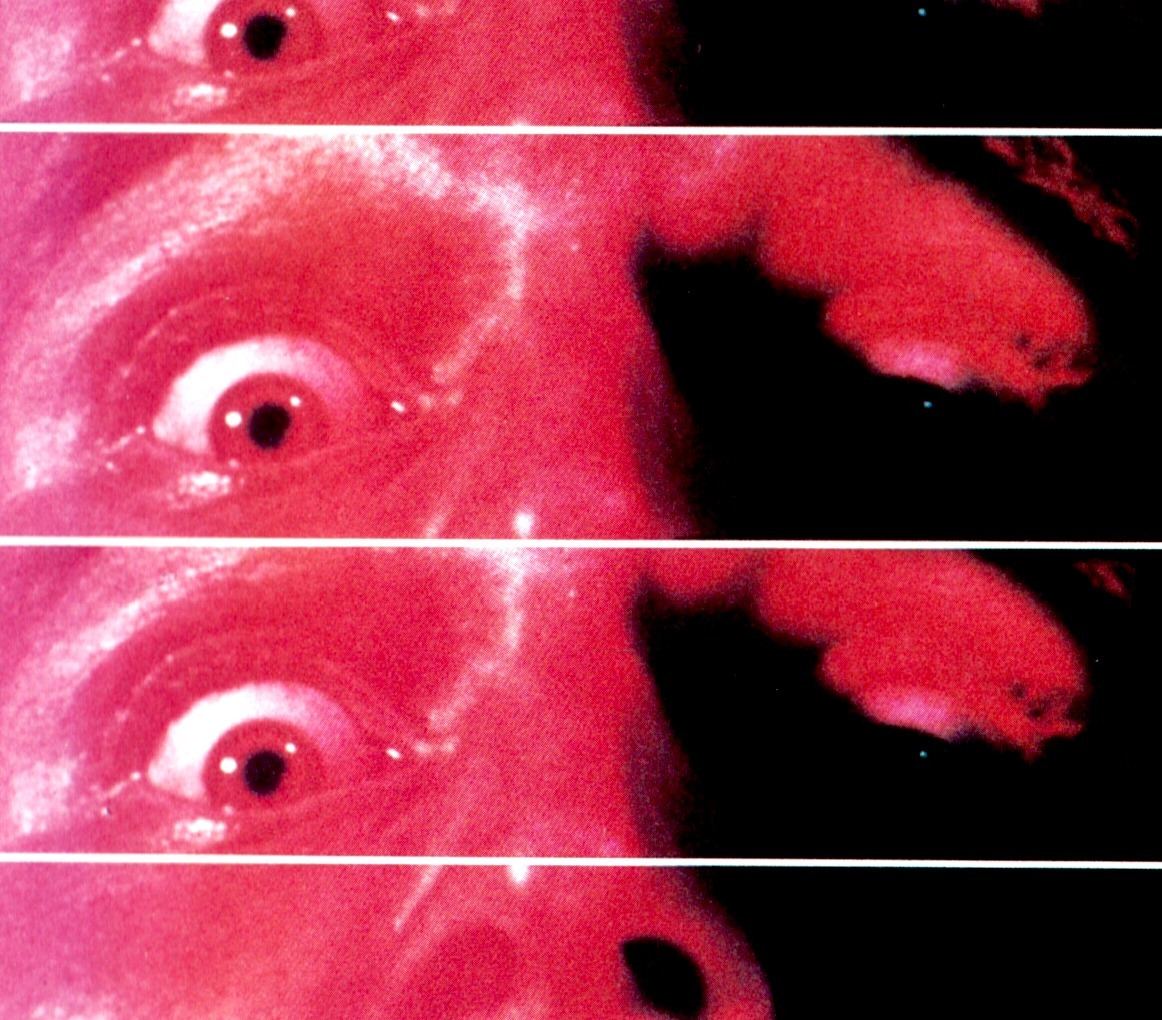
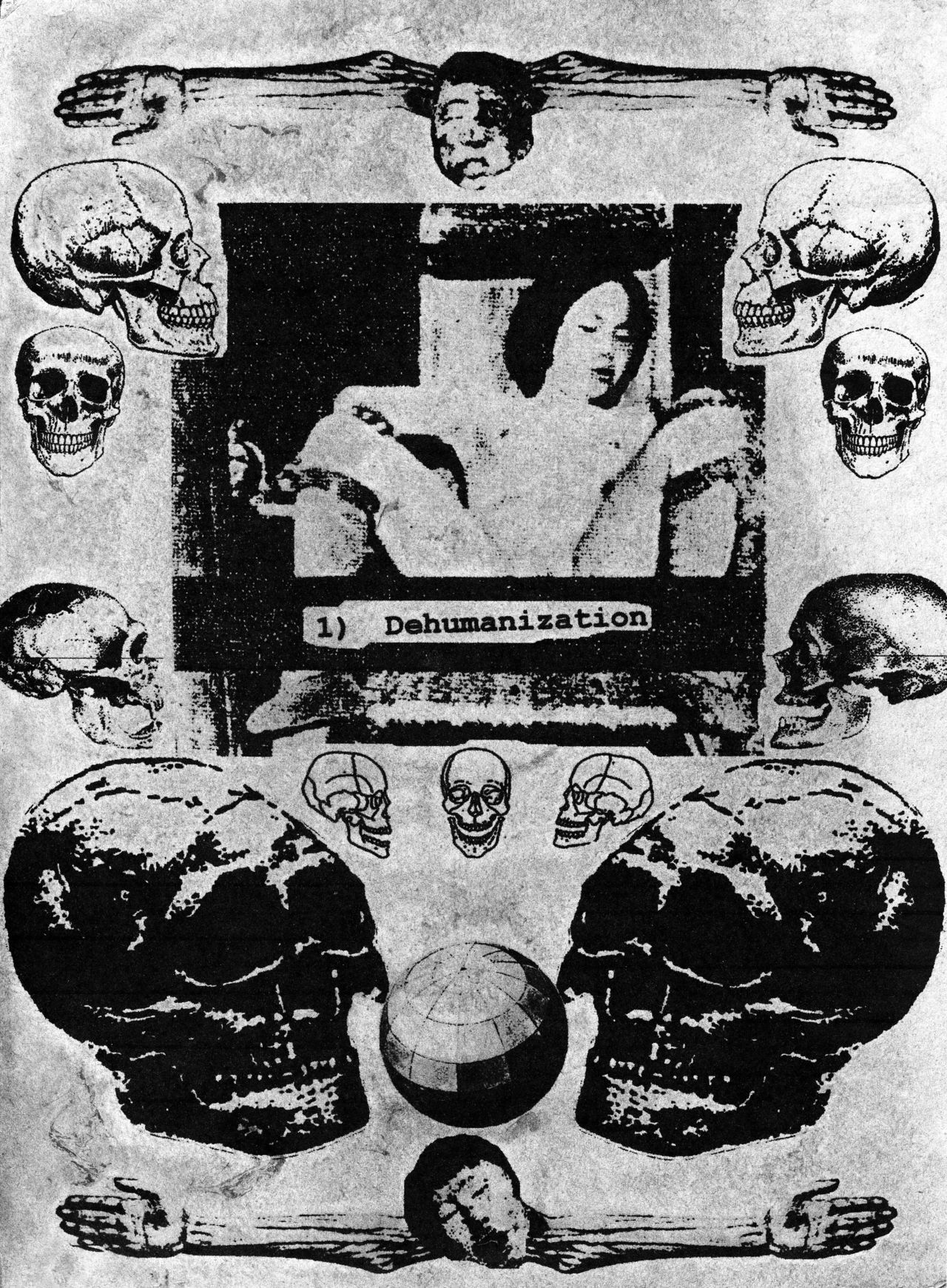



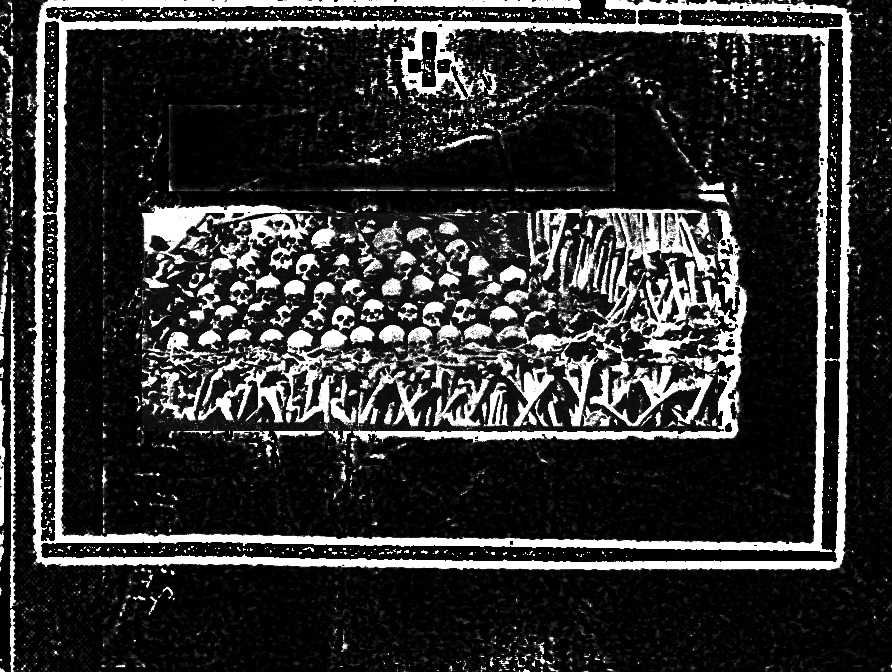
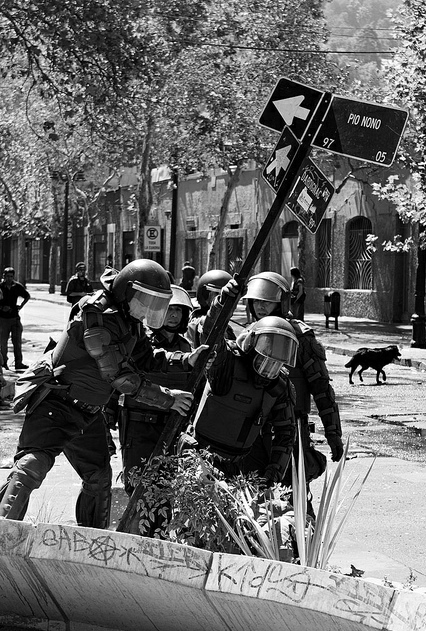
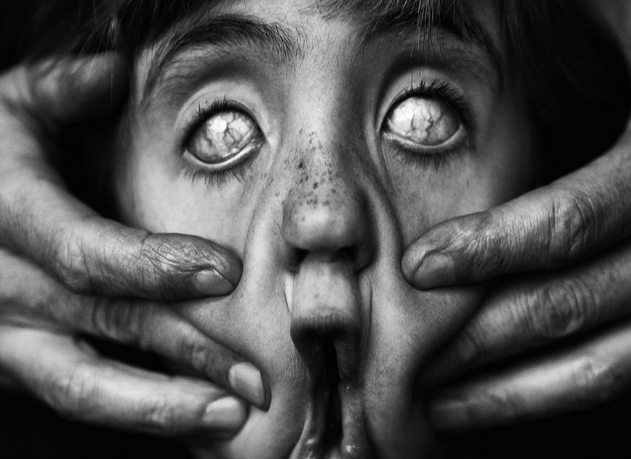


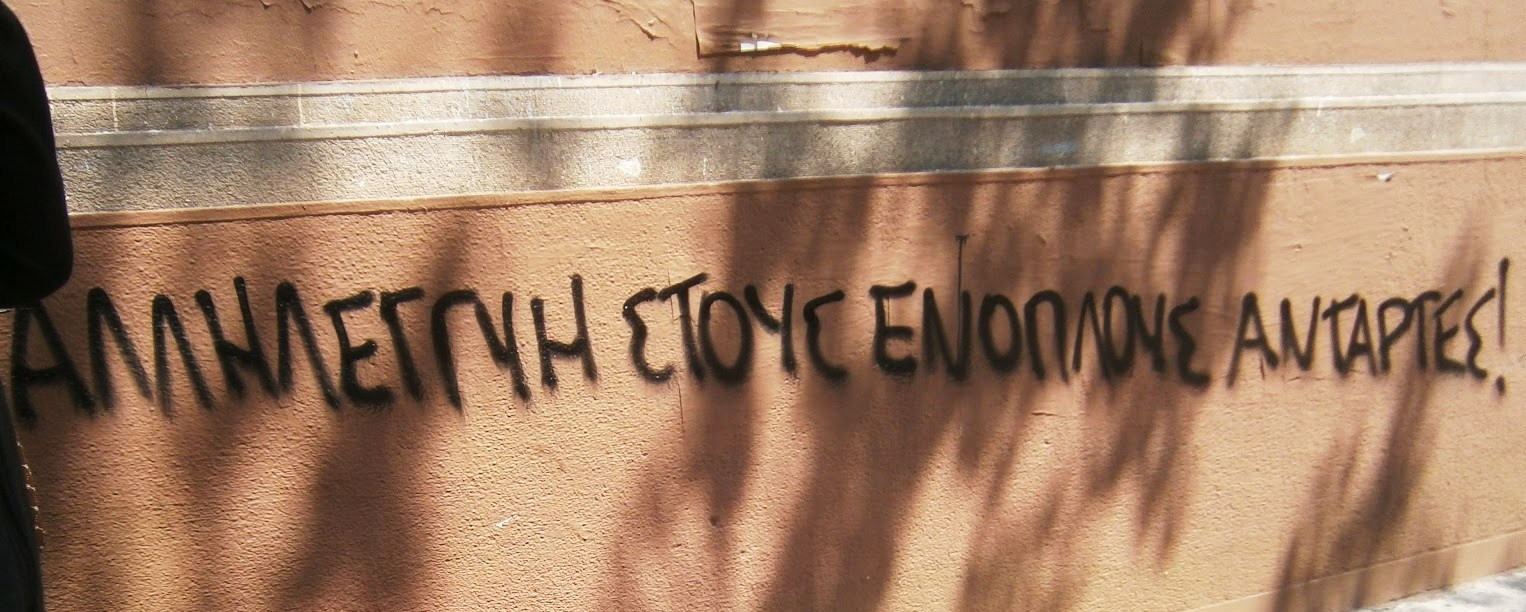

![Eurorepressione - Sulla conferenza a Den Haag sul tema "Anarchia" [corretto]](http://25.media.tumblr.com/tumblr_m0jvngOXtY1qa2163o1_1280.jpg)
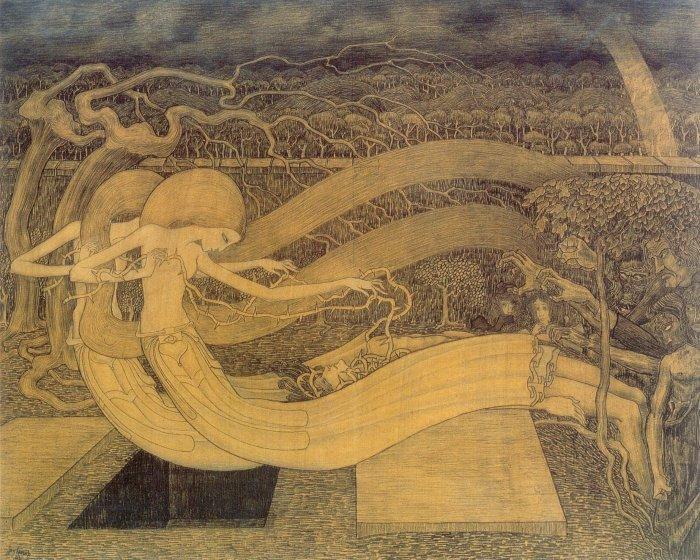
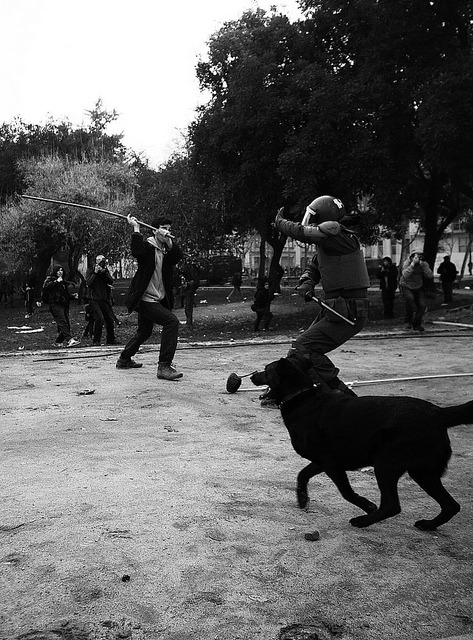
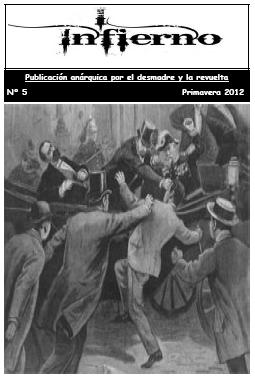
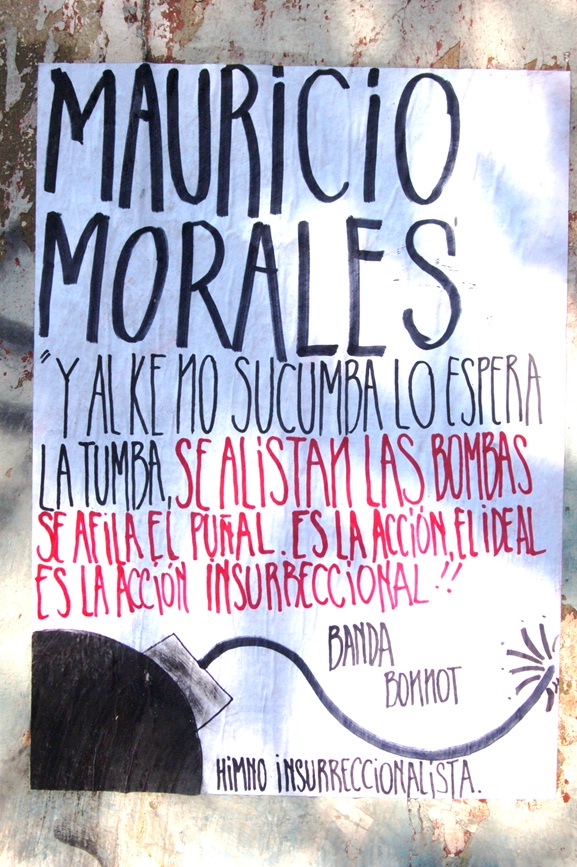
![A tres años de la Partida de Mauricio Morales: De la Memoria a la Calle [Stgo.]](http://metiendoruido.com/wp-content/uploads/2012/05/mmacividad.jpg)
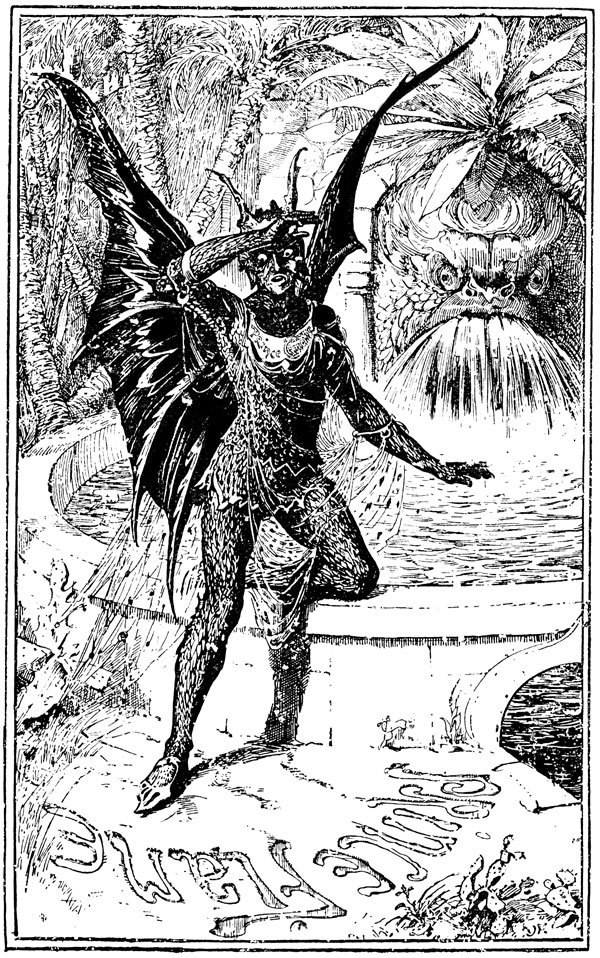
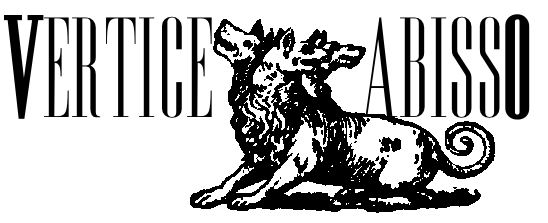



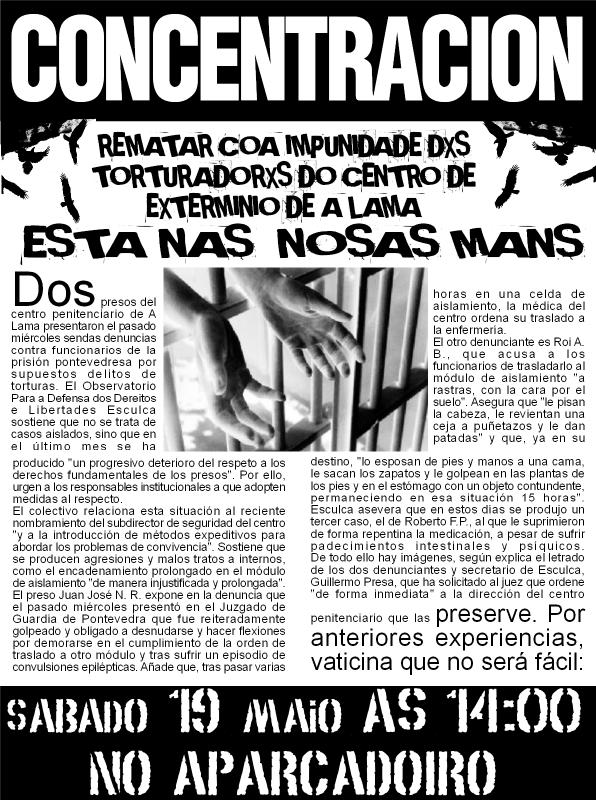

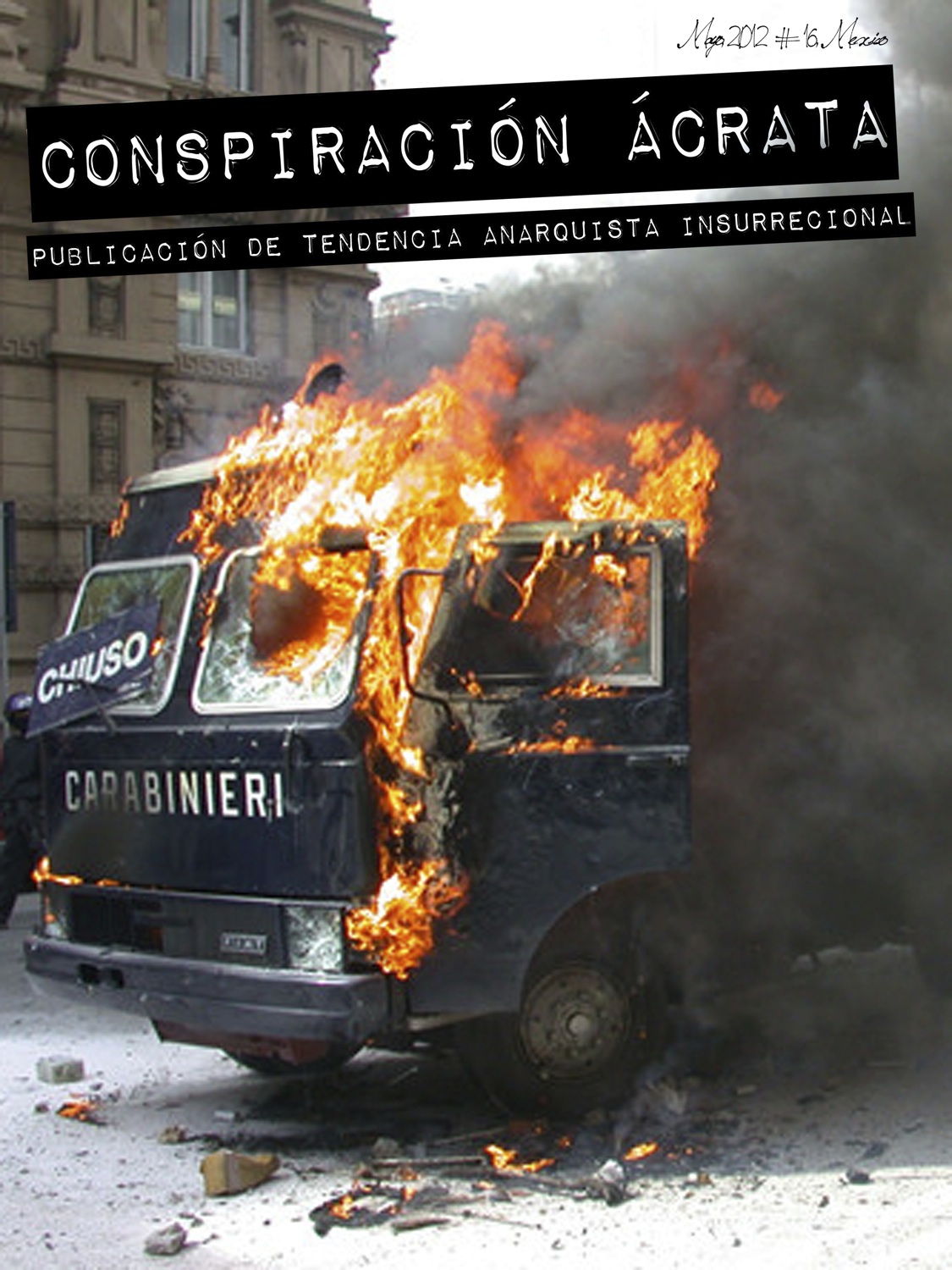

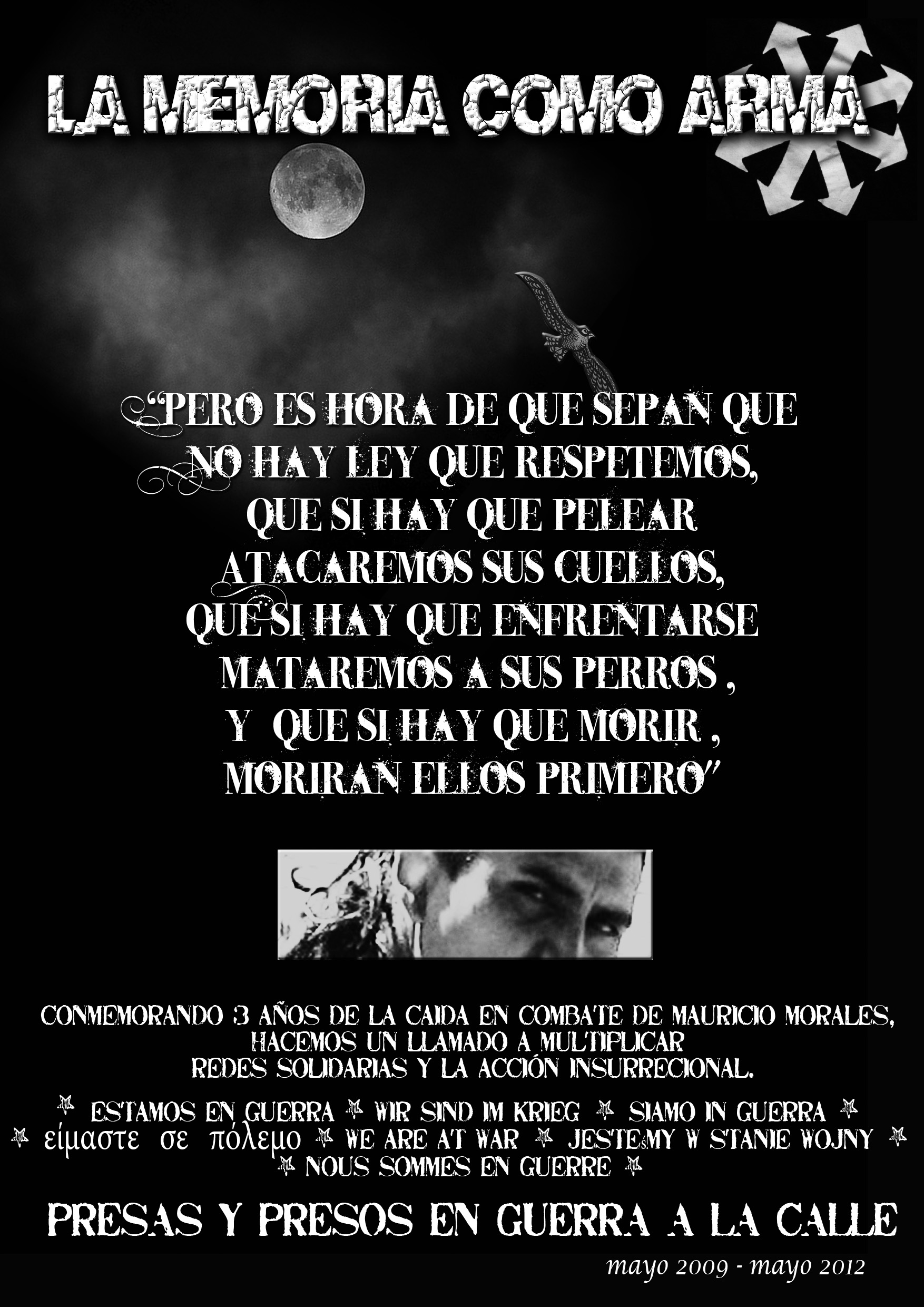
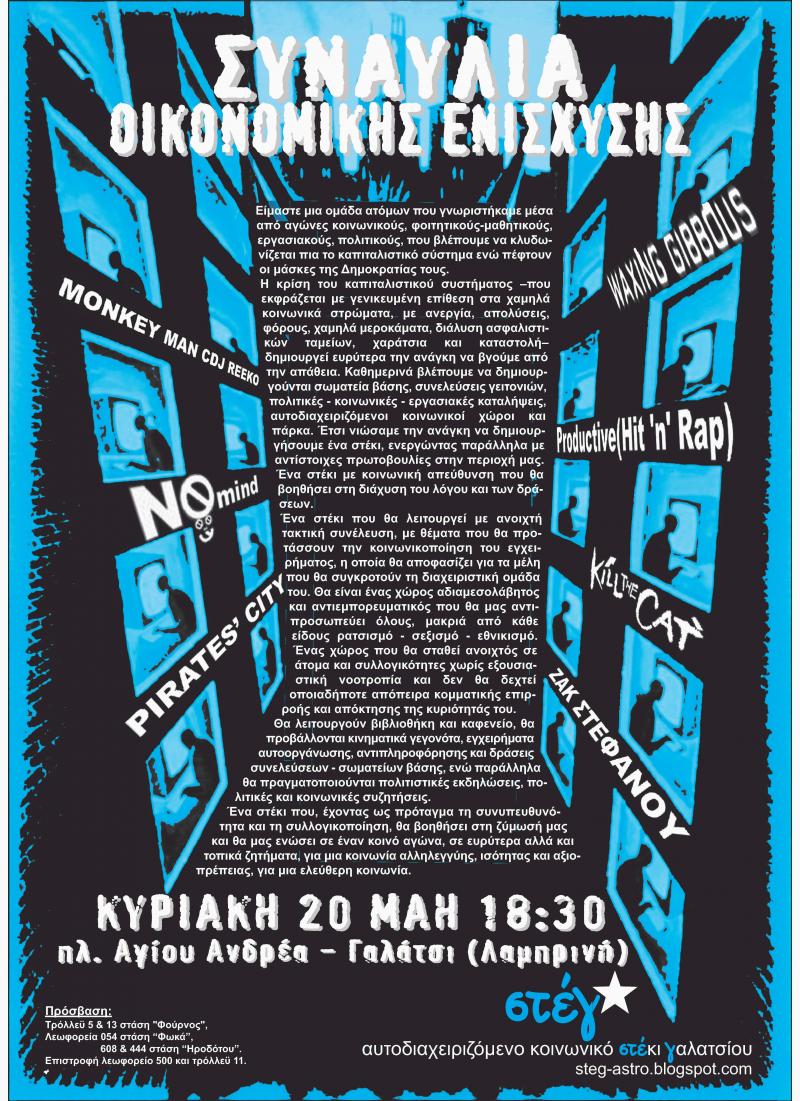








Nessun commento:
Posta un commento